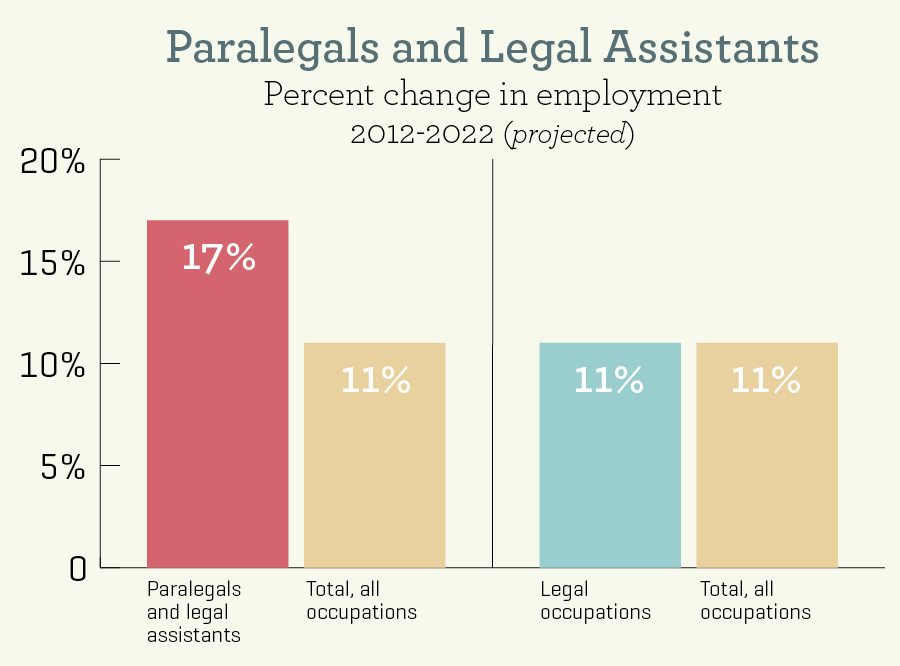In a legal team, a paralegal is a highly-valued member that has high knowledge of the law and legal matters. A paralegal is not a qualified lawyer, the main differences between a paralegal and a lawyer are licensing and education. A lawyer can represent clients and legal proceedings and also provides some legal advice. On the other hand, a paralegal is not yet formalised in many states.
Job responsibilities of Paralegal:
Job roles of a Paralegal are-
- Doing background research
- Preparing an attorney for a trial or hearing by enquiring about the facts of the case
- Collecting and organizing documents relevant to the case directly
- Drafting motions, writing reports, and plea agreements
- Researching prior legal cases to support established precedent
- Preparing mortgages, contracts, wills, and other civil documents
- Conducting interviews with clients
- Acting as a medium between client and attorney by maintaining communication and supporting the client
Required skills for Paralegals:
Both hard and soft skills are required by Paralegals to get the work done. Here are a few common yet useful skills required by a paralegal-
- Legal Research
- Organization skills
- Active listening
- Reading comprehension
- Legal writing
- Judgment and decision-making
- Emotional intelligence
- Critical thinking
- Public speaking
- Complex problem solving
A paralegal works in a helping capacity and performs different tasks that can support lawyers better to serve their clients. As per the report presented in 2020 by the Bureau of Labor Statistics (BLS), there is a high chance that Paralegals can experience 12% growth through 2030.
Fig 1: Daily Growth in Paralegal
Here are the steps you need to follow if you want to become a Paralegal-
Step 1: Fulfil all the Paralegal Education Requirements
There are no particular regulations or standards which you should follow to become a paralegal. However, you may consider an associate degree in paralegal studies, a bachelor’s degree in legal studies or a related field, or a master’s degree in legal studies. You should follow ABA (American Bar Association) guidelines as you evaluate your top paralegal program choices.
Step 2: Determine Speciality
You may choose from different paralegal specialties that lead to different paths such as Litigation paralegals, Government paralegals, Estate planning and probate paralegals, and Labour law paralegals. If you are interested in Government paralegals, then you should pursue jobs in hospitals, real estate, human resources, social work, or other fields with the private sector.
Step 3: Finish a certified course of Paralegal (Optional)
You can also complete different paralegal certification courses from the NALA (National Association of Legal Assistants), the ACP (Advanced Certified Paralegal), or the Professional Paralegal Certification from NALS.
Step 4: Meet State-level Paralegal Requirements (Recommended)
If you want to become a paralegal, you may also consider state-level certifications, most of which are voluntary and issued by local paralegal associations.
Step 5: Gain experience as a Paralegal and get a job
Different institutes offer internship programs to the fresher paralegals. You should seek one to gain proper practical knowledge on paralegal before finding a permanent job.
So, these were the basic steps if you are willing to become a Paralegal. I hope, this article is useful for you and you can gain basic knowledge about the paralegal career. We will come with more new information about the current topic. Lastly, you can share your opinions with us about the current article.
